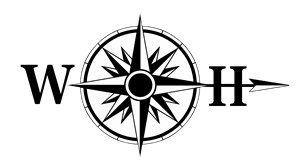Win A Marine Archaeology Course
In The Caribbean
Worth More Than £2,000
(Click here for further information)
Article #10
| Title: | Getting Out Of The Library |
| Produced By: | Mike Haigh (Project Director Wreck Hunters) |
So, we come to the final article in my series on techniques used in diving archaeology. In this I will take a glance back at what we have covered, but also look forward to what I see as being the future for diving archaeology, both in terms of our project and also in a more general sense.
In this series we have covered searching for ancient wrecks in the depths of the oceans to the raising of delicate objects and everything in-between. The reason I did this was to give you some idea of the great range of skills that are taught on a diving archaeology course. Many of these skills, of course, can be applied in other diving activities.
Back to April 1986, I instructed on the first ever Nautical Archaeology Society (NAS) Part 1 course, hosted by Bristol University. This was the first formal training system, teaching diving archaeology in the UK, arranged by a national body. Prior to this, sessions were run but often on an ad hoc basis. The only programme with any continuity was that run at Bristol University, designed by Dr Toby Parker entitled ‘Archaeology for Divers’. The idea was that at the end of the weekend if a diver/diving club found something ‘interesting’ they could do a half decent job of recording the site to enable a museum/archaeological professional to have some idea of what it was. The principle being that it is easier to teach divers about archaeology than it is to teach archaeologists to dive. The weekends were always fully booked. You will not be surprised to learn that you could hardly squeeze a trowel between the content of the NAS course and what Toby created.
The NAS scheme is still with us although it has changed from its original format. In fact, around the globe there are many courses and field schools devoted to teaching diving archaeology. The advantage we have over some is that we have a long field season and a real wreck in a perfect location for teaching.
So now let me gaze forward to how diving archaeology might look in the future. First let us look at the ‘high tech’ developments that are going to affect wreck research. The first of these are autonomous vessels. In the future, fleets of these machines will be used to map the seabeds of the world and eventually be able to spot wrecks in in deep-water. The information will be in the public domain – so everybody will be able to go wreck hunting!
Then there is satellite reconnaissance which is being developed to enable the exploration of the seabed; right now a blunt tool but getting better. On a practical level, as applied to deep water excavation, new tools will be available that will allow us to excavate remotely with millimetre precision on the seabed. One day, due to improvements in communications, it will be possible for Project Directors to run autonomous underwater systems from autonomous vessels, supervising from the comfort of their own homes.
But High Tech also means high cost. To run the type of operations I have outlined above literally cost a massive amount of money every single hour, well beyond the budget of most projects. So, what of lower cost diver focused operations? It is estimated that between three and four million shipwrecks lie beneath the waves. Many of these wrecks are within safe diving limits and will contain important information about man’s past.
Then we come back to cost. Without financial assistance, even shallow water projects can be prohibitively expensive, especially if you must pay your divers. Archaeological research below the water line becomes much more feasible if you can rely on a well-trained amateur workforce. That is where we come in. By amateur I do not mean less well skilled. It just means the person is not paid to do it.
Finally, it leaves me to say that I have enjoyed writing these articles and I hope that you have enjoyed reading them. As that renowned academic Indiana Jones once said, ‘If you want to be a good archaeologist – get out of the library.’ Well, we are ‘getting out of the library’ – and if you want to join us in Utila.
But for now, I wish you all safe and enjoyable diving.
Mike
